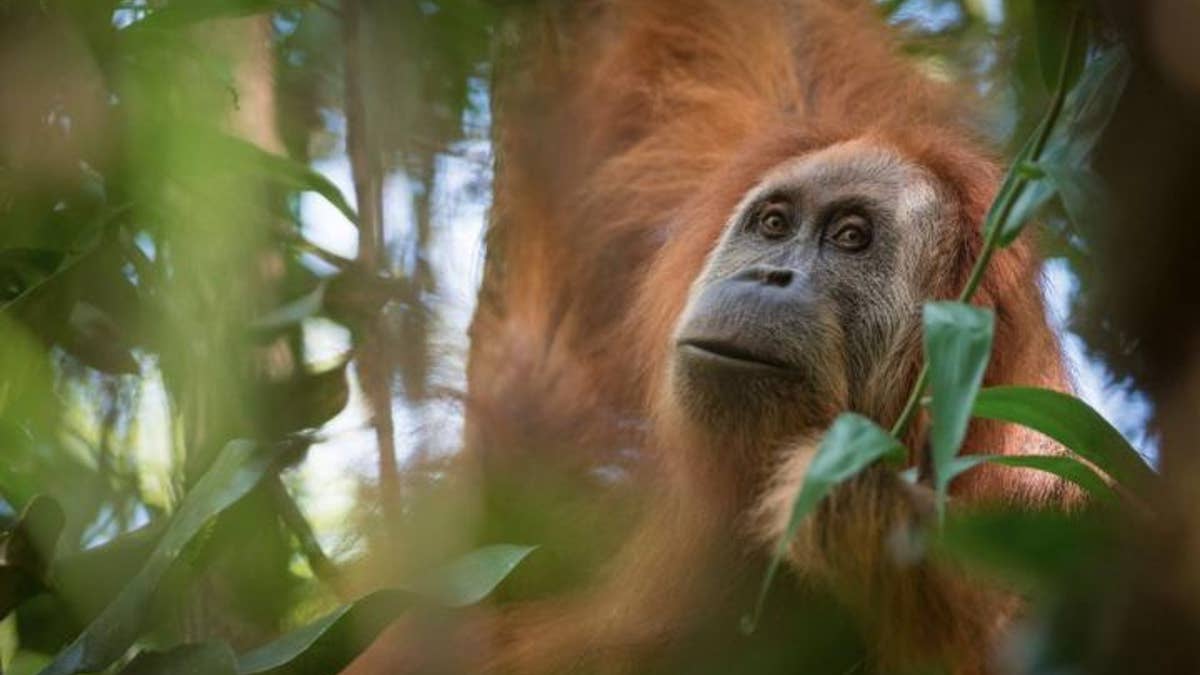
The Pongo tapanuliensis, a new species of orangutan (Andrew Walmsley)
A newly-discovered species of great ape could soon be extinct if humans keep monkeying around with its environment, scientists say.
The Tapanuli orangutan was recently designated as the seventh-known species of great ape on Earth, joining Sumatran and Bornean orangutans, eastern and western gorillas, chimpanzees and bonobos. A team of biologists and anthropologists who have been examining the animals for four years announced their finding in Current Biology, a research journal.
The great ape, found in the Batang Toru area of North Sumatra, Indonesia, was only a rumor until 1997, when scientists caught their first glimpse of one, and it wasn’t until 2013 that researchers were able to obtain the skull of one of the animals. Only now, after years of research, are they confident that the Tapanuli’s behavior and genetic characteristics — consistent differences in its skull and teeth — distinguish it from the Sumatran orangutan, making it a unique species.
THE FASCINATING SEX LIFE OF JONATHAN, THE 185-YEAR-OLD GIANT TORTOISE
"The Batang Toru orangutans appear to be direct descendants of the initial orangutans that had migrated from mainland Asia, and thus constitute the oldest evolutionary line within the genus Pongo," said Alexander Nater of the University of Zurich, in a statement. "The Batang Toru population was connected to populations to the north until 10,000 or 20,000 years ago, after which it became isolated."
"It isn't an everyday event that we find a new species of great ape, so indeed the discovery is very exciting," said the study’s senior author, Michael Krutzen of the University of Zurich in Switzerland.
But the researchers say there are only about 800 Tapanuli orangutans left, and they could soon become extinct. In addition to hunters, a hydroelectric dam proposed for the area could flood the great apes’ lowland habitat.
TERRIFYING TIGER ATTACK: HORROR PICS SHOW BIG CAT MAULING ZOOKEEPER
"If even 8 out of 800 animals per annum were killed or otherwise removed from the population, the species might be doomed," the scientists said.
"Great apes are among the best-studied species in the world," said Erik Meijaard of the Australian National University. "If, after 200 years of serious biological research, we can still find new species in this group, what does it tell us about all the other stuff that we are overlooking: hidden species, unknown ecological relationships, critical thresholds we shouldn't cross?
“Humans are conducting a vast global experiment, but we have near-zero understanding of what impacts this really has, and how it could ultimately undermine our own survival."
